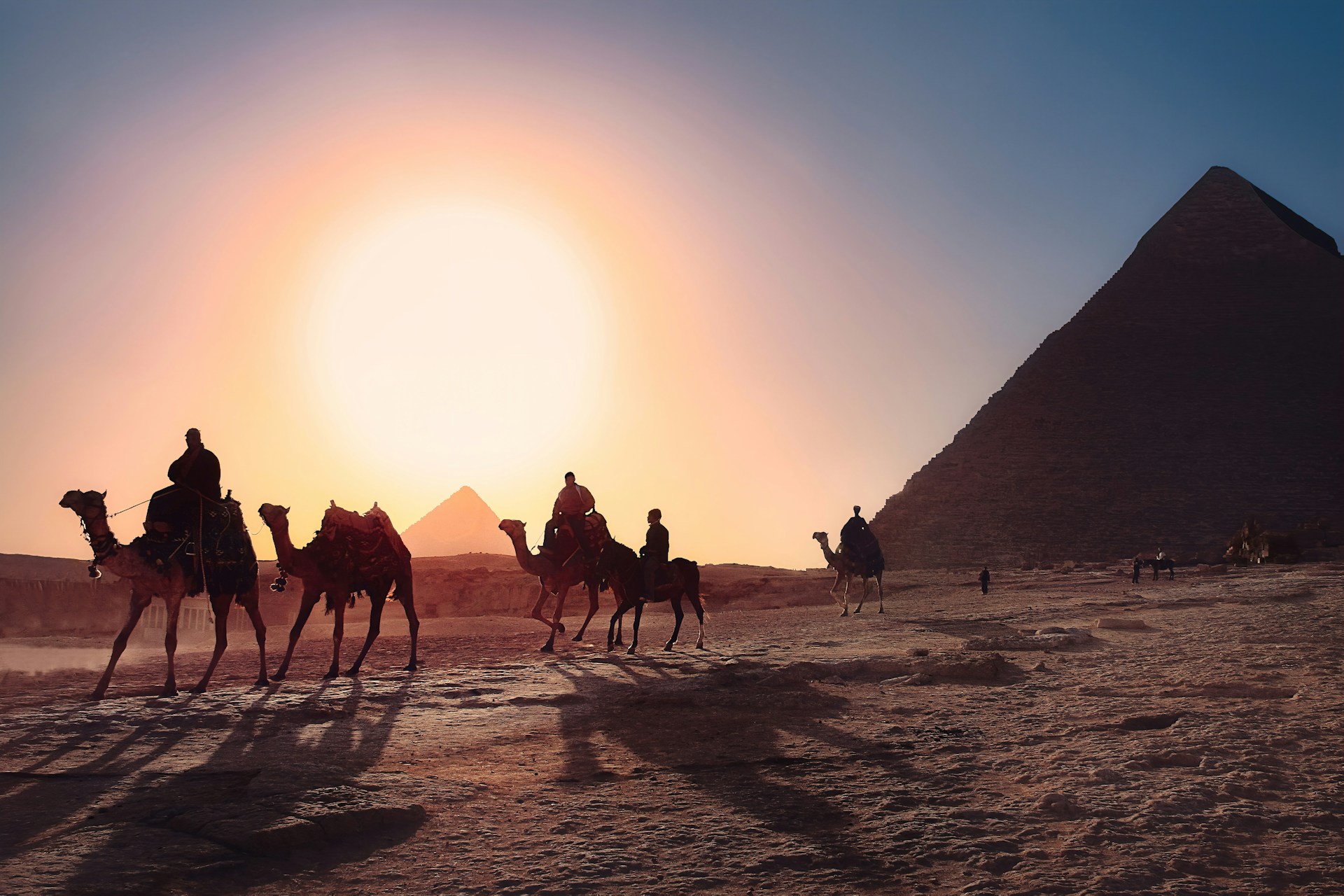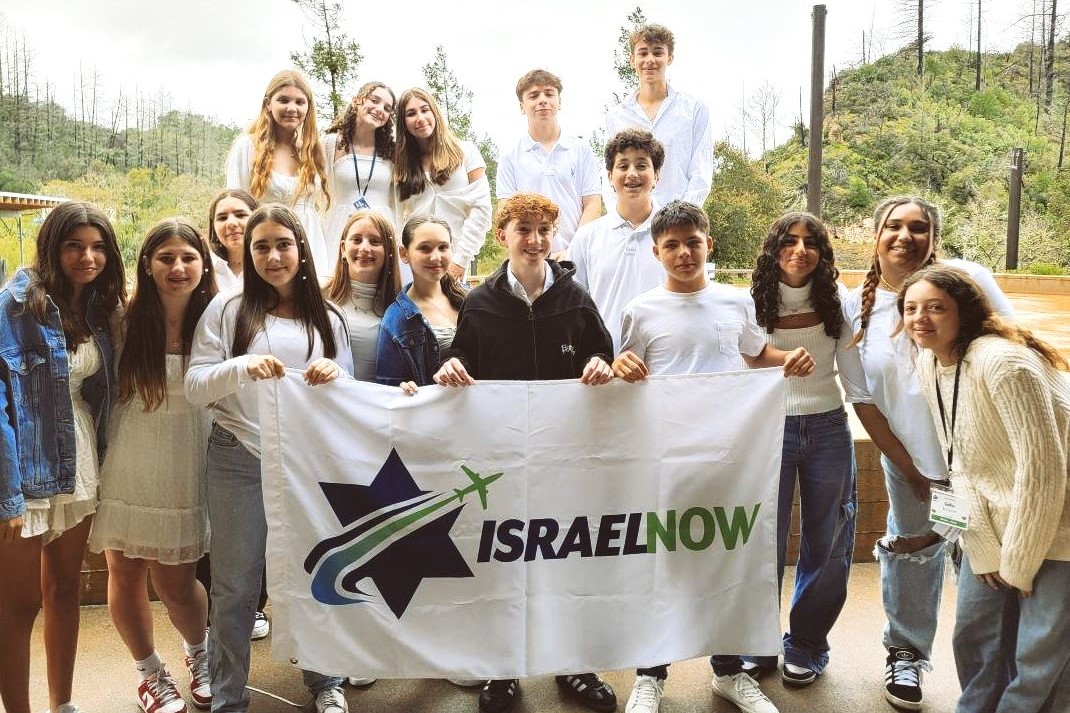When You Take...

This week’s Parsha was written by Mark Kravitz, a member of our CAJE Board and past chair of CAJE’s Miami Jewish Film Festival as well as a member of the Federation Board, MCCJ, KESHET, Mazon and the Jewish Education Project of New York.
It is dedicated in memory of Sheila Silverberg, past co-director of CAJE’s Early Childhood Department, and a champion of Early Childhood education.

Photo by Håkon Grimstad on Unsplash
This week’s parsha is Ki Tisa, which means “when you take.” And as we will see, there are plenty of things to take away from this parsha.
Moshe has led the Israelites out of slavery to this very important moment. G-D has split the Red or Reed Sea, fed everyone from the sky with manna and organized the people in such a way that they were well taken care of in every aspect of their daily lives, all while roaming in the desert.
The people were generally very good at following Moshe and G-D’s rules. But they were about to break a big one!
Imagine if you were an Israelite at the base of Har Sinai. Over the past few weeks, your life has been turned upside down. You have witnessed amazing miracles; you have been freed from slavery, and you have marched through the wilderness to get to this turning point, for what is to become your life, moving forward.
You know you are going to end up somewhere new - somewhere you have never been. You witness Moshe going up the mountain.
How would you feel under these circumstances? Perhaps you would feel the awesome presence of G-d all around you - and also, the fear that overtakes you when your leader suddenly leaves you for 40 days to climb up a mountain into the clouds.
Remember you are an ex-slave used to being told what to do and how to do it. Everything in your life was predictable, until you left Egypt. Like in Egypt, you crave something you can see and control, rather an invisible deity and a leader who disappears into the clouds.
So what do people do when they lack certainty and feel anxious? They revert to what they know. And in this case, they know the pagan culture and idol worship of Egypt, which gives them the comfort they think they need.
They build a Golden Calf and worship it, which is how Moshe finds then after coming down the mountain with the first set of commandments.
The actions of our people in this parsha show a fear of change. As we know, change can be a good thing. But we also know how difficult it can be to adjust to change or to inspire new behaviors and break old habits.
Research suggests that the way the human brain is designed may make us predisposed to resisting change. The parts of the brain relating to everyday instinct, emotions, memories and habits require less energy to use than the pre-frontal cortex, which is associated with decision-making, behavior moderation and complex thinking.
Challenging what we have learned in the past and creating new neuropathways can be difficult – it can make us feel uncomfortable or even pained. And it can lead to engage in fight or flight responses.
Imagine if we could have gotten past our heightened fear and anxiety as we watched Moshe ascend into the clouds and waited for him to return. Maybe we could have taken a little time to calm down and distract ourselves with something before we decided to build the Golden Calf.
Perhaps Aaron could have held a gluten-free manna baking competition or a sheep herding race or anything that would have distracted us for a couple of days, enabling our fears and anxieties to subside until Moshe descended the mountain and returned.
Some of you may be familiar with the work of Ronald Haifetz from the Kennedy School at Harvard. He distinguishes between technical issues that require more straightforward technical changes versus adaptive challenges that happen when our deeply held beliefs are challenged, when the values we believe in become less relevant, and competing perspectives emerge that must be addressed.
He notes that technical changes are made in response to clearly defined issues or challenges. For example, if the internet goes down in a building, the owner or property manager might call a technician to resolve the issue.
In the Torah, as people were wandering in the desert, they needed to be fed, so G-d and Moshe arranged for manna to fall from the sky. Leaders can often make technical changes within a short time frame, and the people involved are usually receptive to the necessary change because it fixes a problem and doesn’t ask much of them.
By contrast, adaptive change is meant to address complex challenges that can be hard to identify and present no obvious solutions. Determining potential long-term solutions can involve experimenting with new approaches and practices. These type of changes typically require a collective effort and a cultural shift in values, beliefs, attitudes, and approaches.
For example, a doctor can prescribe medications and even perform certain medical procedures to help change the poor health of a cardiac patient. Those are the technical changes and solutions to the problem. However, changing one’s lifestyle to prevent further health issues -- by implementing a change in diet, by quitting smoking, by getting more exercise, and so forth— these are the adaptive changes that will truly bring long-lasting health improvements in the patient’s life.
What G-D discovered when Moshe descended with the original 10 Commandments was that no matter how many technical changes and solutions to problems Moshe could implement, he couldn’t make the final and most important step -- to change who the people were.
Moshe had not been able to make the adaptive changes needed to take the slave mentality out of the people so they could become independent, higher-level thinkers with greater self-control.
This was the paradox (and perhaps if you are a parent or have been very involved in raising children, you can sympathize with G-d and Moshe).
G-D had given the people everything, but he couldn’t change the people until they truly wanted to change themselves.
G-D even wrote the 10 commandments for them in G-D’s own hand! Yet, no matter what technical solutions were prescribed, if the people could not find a way to accept their fear and anxiety and embrace the changes they were experiencing, they would never be able to embrace any lasting and deep adaptive change.
When Moshe returns to top of the mountain to get the second set of commandments, we can see that things are different.
This time, G-D makes Moshe write the commandments himself, rather than writing them for Moshe and the people, as was done the first time.
G-d realizes that he isn’t helping Moshe or the Jewish people by doing everything for them.
G-D needs his people to make the adaptive changes necessary to fulfill the covenant and be worthy of becoming the chosen people, G-D’s special task force in the world who would ultimately enter the Land of Israel to create a community living the mission they were given.
We see these same technical and adaptive challenges in our own everyday lives.
They show up in how we raise our children, and how we navigate the work of CAJE. Certainly, we implement technical changes, such as the wonderful programming from the March of the Living to the Film Festival.
And we continue to try to bring about adaptive changes as well. How do we move forward as a community of learners in a community where the majority is no longer very receptive to traditional learning methods?
We have to address the nebulous challenges and issues that don’t necessarily have obvious solutions. We have to focus on tangible metrics as well as the intangibles –how our educators are feeling about their impact or how our community is feeling about the offerings and opportunities we provide.
We experiment with new approaches and practices. And we realize that to make the adaptive changes, we as a community need to engage in a collective effort to embrace the cultural shifts that are needed.
So if Ki Tisa means “when we take,” what are the Israelites taking in this parsha?
They are taking the 10 Commandments and the Covenant, and they are also learning to take responsibility for themselves and their actions.
Like them, we ourselves are always striving to move from slavery to freedom by working on accessing our higher-level thinking and regulating our behaviors. We are taking guidance from our leaders, without relying on them to do everything for us – because they can’t and even if they could, it would not be good for us.
We are taking all the tools that G-d and Moshe have provided for us in the Torah and we are hopefully using them to work on ourselves and become the people we were truly meant to be.
That way, when we look back on our own life journey, we will, G-D willing, be able to see all the adaptive changes we have made to better our lives, our family’s lives and our entire community.
Shabbat Shalom!




